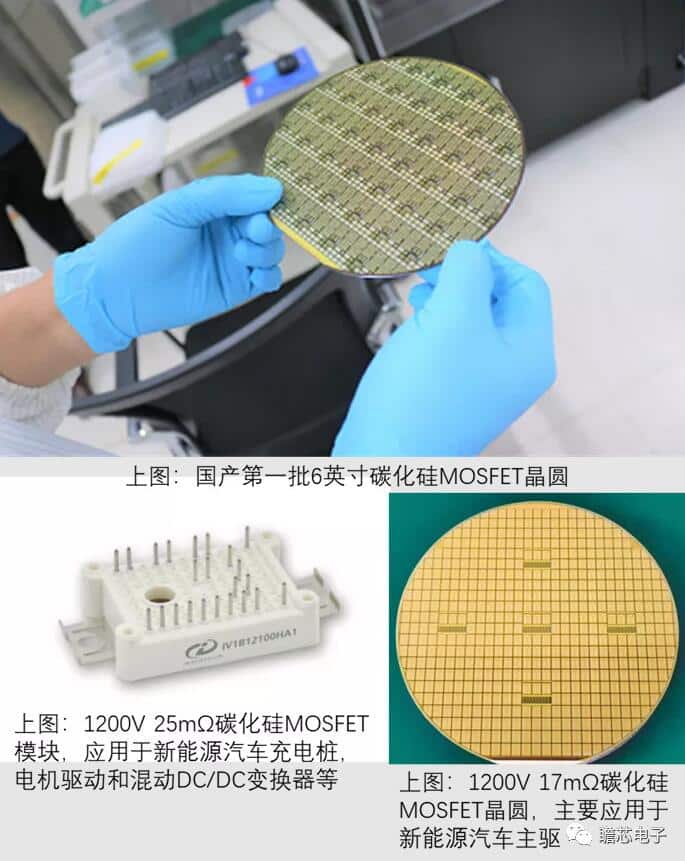The Xpeng G9 will use an 800-volt high-voltage SiC electric drive system, and Nio's soon-to-be-delivered ET7 also uses SiC chips.
Silicon carbide (SiC) chips are considered a must for high-performance electric vehicles, and now Xpeng has invested in a supplier of such chips.
Shanghai-based SiC chip startup InventChip Technology announced today that it has closed a strategic financing round with exclusive participation from Xpeng, just four months after its last funding round.
The latest financing will be used for market development, supplementing R&D and working capital, and bringing in talented people, InventChip said in a statement, without disclosing the amount of the financing.
With the rapid rise in sales of new energy vehicles (NEVs), the use of SiC in components including electric drives, OBCs and charging piles will bring a broader market for the technology, said Xpeng Vice President Zhang Xiaofeng.
Xpeng believes InventChip will continue to lead in the local SiC field and become one of the leaders in the global market and looks forward to more cooperation with it, Zhang said.
Founded in 2017 in Shanghai Lingang, InventChip is dedicated to developing SiC power devices, drive and control chips and SiC power module products.
InventChip has become the first company in China to develop and master 6-inch SiC MOSFET products and process platforms in-house, it claimed.
On September 11, 2020, InventChip's silicon carbide 1200V 80mohm MOSFET products with fully independent intellectual property rights passed JEDEC certification, making it one of the mainstream local makers of industrial-grade SiC MOSFET power devices, the company said.
To date, InventChip has shipped more than 400,000 of its in-house developed SiC MOSFETs, it said.
(Image credit: InventChip Technology)
Last October, the company closed RMB hundreds of millions in Series A+ and Series A++ financing from investors including Lightspeed China Partners and Hubei Xiaomi Changjiang Industry Fund.
At the Guangzhou Auto Show in late November last year, Xpeng unveiled its flagship SUV, the G9, saying the model would be equipped with an 800-volt high-voltage SiC electric drive system that could reach up to 95 percent efficiency and 89 percent combined efficiency.
The Xpeng G9 is China's first production vehicle based on the 800V high-voltage SiC platform and can get a range of more than 200 kilometers on a five-minute charge, the company said at the time.
It is worth noting that the Xpeng G9 is not the first vehicle to use SiC chips.
Mainstream carmakers still use IGBTs (insulated gate bipolar transistor chips), but Tesla and BYD have already started using SiC MOSFETs in their Model 3 and Han EV models.
Nio has also mastered the technology through in-house R&D, and on June 22 last year, the company announced that the first SiC electric drive system C prototype for ET7 came off the production line.
The SiC technology is mainly used in the core power electronics of the ET7's permanent magnet motor controller, a component that serves to convert the DC power from the battery into the AC power needed for the motor, Zeng Shuxiang, CEO of Nio's motor business XPT, said at the time.
